Habitual Hero: The Art Of Winning by Santosh Jha (top 10 best books of all time txt) 📕
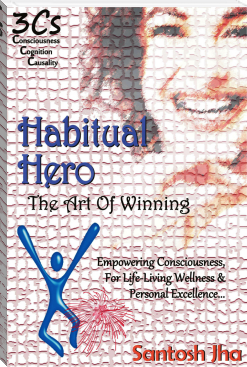
- Author: Santosh Jha
Book online «Habitual Hero: The Art Of Winning by Santosh Jha (top 10 best books of all time txt) 📕». Author Santosh Jha
Very early in human evolution, when humans had not even developed language, some of the more evolved brains could detect and establish that there was a pattern all around them in immediate nature, which they could decipher. It was revealed to a few. The later humans also understood it and they chose to express it in metaphors and symbols. Usually, early metaphors were derived from nature. As language was developed, they put up language metaphors.
It is understandable as metaphors were most easily replicable even for an un-arrived brain. The knowledge of process facilitates replication. It had to be as there was a discernible pattern of cosmos, which were replicable in nature. Even later, when language was developed quite well, the metaphors took the shape of verse not prose, as brain would accept the verses more easily. That is why, all ancient human documents or oral traditions of wisdom were written in verse style.
Metaphors are replicable patterns and they are all around us to understand easily. For example, we are told, the life is like a jungle and we have to make our own roads to success by clearing the bushes and trees. And how this success comes? This comes when we as a brain, prune or unlearn some of the info of our subconscious as well as the cultured mind and create a path of higher consciousness.
There is also an Oriental spiritual metaphor of the world being a ‘maya-jaal’ (plexus of senses). This matches with the scientific pattern of brain functioning in which brain creates a huge branching network of axons, dendrites and synapses. A good and rational human being, a prudent mind has to rise above this network created by a subconscious mind with the help of higher consciousness. We are all told how most get lost in this forest and few succeed in creating the right path.
They chose metaphors because brain accepts most things as pictorial and relates it as templates. That is why, metaphors, which abound in nature around us and can be seen from bare eyes, were chosen.
Despite the worthy compassion of the ancient wise men and their brilliance in selecting excellent metaphors and symbols for laying out the processes of the wisdom they acquired, the average human could not benefit as the processes were very subjectively received. Scientific answers, when laid as procedures have singular and objective reception by all minds and that is why, the technology is universal, even while languages are different.
As these ancient metaphors and symbols lacked objectivity and singularity of reception by all minds and every individual mind accepted them in its own subjective interpretation, they could never be replicated by the society at large. These rather engendered multiplicity of expressions and actions, creating bad replica in the forms of calamitous rituals.
The metaphor system of wisdom dispensation was good only for the arrived brains but for most, the majority of the common masses, even this metaphor was a matter of great misunderstanding and conflict. That is why; ancient wisdom is the most misinterpreted one and bears more conflict of mind than order. Religion and spiritualism remain confused and conflicting domains, ridden with dangerous rituals, all competing to be the right one, at the cost of the denial of others.
Sadly, as is with almost every human enterprise, some of the unscrupulous elements of society at all times, used this confusion, conflict and misinterpretation for their own petty and selfish ends. The religion, spiritualism and philosophy have always fallen on the hands of some of these elements and some confused people.
The humanity has always suffered. These selfish elements converted these meaningful metaphors into set of rituals, which were masterly designs to suit individuals, and a set of individuals who wished not religion but its ownership. Wider ignorance of humanity made it all very easy, they still are.
You may ask, why we are talking in such details about this ‘metaphor-building’ and inherent troubles in it. We are doing it because of the benefits it extends us in being the ‘master of mechanism’, leading us to be the all-season hero. We now list the benefits this process of metaphor-building extends to every individual, if this exercise is done with constant practice and perseverance of art:
Every person has to build his own set of metaphors, which he or she accepts after discerning those patterns of life around him or her. As we have said, there are patterns of excellence all around us – both tangible and intangible. We need to decipher them and create our own metaphors for easy references later.
What stays is what sinks in. This means, whatever wisdom we can internalize, that alone stays with us and helps. That is why, even when we read and see number of wisdom metaphors all around us, what we ourselves create and accept are what stay with us.
Our mind accepts metaphors easily and stores them in active memory, as they are ostensibly pictorial. The mind then saves them as templates, which help us whenever we have the need for tough decision-making in life.
The mind is neutral and for excellence, we all need to create an environment around us, which naturally and instinctively prompts us for excellence. As we create and accept many good metaphors as templates for mind, our mind consciousness develops this good habit of discerning ‘thought and emotion-patterns’ in all situations of life, making it easy and automatic for us to see the ‘winning’ position. All these good templates become our internal environment, within which, our ‘winner’ personality excels.
Like James Bond, all excellence must come to us as instinctive and intuitive first action. In our daily lives, we do not often have time and leisure to think and then act. That is why, excellence must he habitual. Metaphor-building helps mind create ready templates for intuitive first action decision-making. The all-season winner has to be a habitual hero in all his prompt and first action.
**
Do Not Be, You Shall Be
Now, the next stage in metaphor building for mental template making is also not an easy task. Just because, this conflict of mind shall always make the inquisitive enquiry about what one should accept as right and what as wrong. Moreover, the most crucial question is – among the loads of symbols and patterns around us, what should one search and find as the right one for excellence?
The wise have said it silently, probably to themselves only, still their talks are everywhere and scattered in so many words. The old wisdom is simple, yet very much shrouded in the veil of mystique. This seems so, because, the sayer of wisdom words probably could not figure out the easy process and mechanism of making the millions understand the inevitability of dualism and conflict and for coming out of it. However, their words tell us the process.
It is so beautiful, yet so perplexing! The wise say, ‘don’t do anything, yet become everything’. They say, ‘give up everything, you get everything’. They say, ‘go where you began, you shall arrive’. They say, ‘what you experience outside is inside you’. They say, ‘seek the zero, get the infinity’. They say, ‘keep quiet, the music shall flow’. They say, ‘do not be, you shall be’. Etc.
This prescription for coming out of dualism and conflict itself seems mired in larger dualism. The hapless average person asks the arrived, ‘are you not mad, are you serious, anyway, how to do it?’ The sayer usually smiles and moves away. Some greats would just say, ‘do not do, just be’. The hapless remains confused, conflicted and is amply convinced, the wisdom man is surely mad. They pray God to help ‘the wise’ out of his debauchery.
The journey from dualism to non-dualism is very tough. Religion as well as science says, it is not amenable and available for everyone. It is only for a few blessed ones! This, they say, is not ordinary but ordained by almighty! You would also say that this seems true because, there are not loads of James Bond around, very few Heroes.
The human mechanism also confirms this. Brain structure and consciousness varies and it decides the ordinary and ordained. However, the wise have also said that this tough facility is available for all, even the most stupid of all. Some wise said, “Both stupid and genius can learn; only those even God cannot make learn, who are in the pride of knowing.”
The wise says, ‘talent is important but what makes a genius is practice not patronage and lineage’. Ustaads, the gurus and wise have said, ‘the real master is perseverance of practice’. There is a famous visual metaphor said in this regard by India’s most respected poet saint, Kabir. He said, ‘The feeble rope, which incessantly goes up and down with a bucket in the well, makes a deep mark even on the stone walls of the well.’ This metaphor suggests, even the most stupid can qualify to be a genius, if efforts are sustained and persevered with.
Arriving is all about mind training to lead the consciousness to a certain positioning or situationalism of complete reception. As this happens, the dualism goes away, as it is then clear that what the greats have been talking about the wisdom may seem contradictory but actually, both the conflicting options, though looking mutually exclusive, are and remain simultaneously available. Check this:
God says, ‘Stop seeing me, you shall see’. God says, ‘Stop searching me, you shall find’. Now, there are semantic conflations also in these words, apart from the dualism, which is purely a mind and consciousness positioning. One feels the dualism in the lines as it says to ‘stop’ doing something for its ‘fruition’. We must understand why there is no dualism in it.
Semantically, the words tell you that actually, you are caught between two simultaneous actions and that is why you do not arrive at either of the two. The lack of linearity and singular focus sways you away from fruition. When you are seeing or searching, you are amid two actions – the effort of seeing and searching and second is the act of seeing and searching. In addition, you are not clear as what you are wanting to see or search because, the dualism itself throws at you so many probable options of seeing realisms.
From the perspective of mind mechanism, as science tells us, the same is happening. You are caught amid two dimensions. The mechanism tells us that when we are in a search or looking, there are two things happening to us – first the search and second the seeing. We see so many things and naturally the brain processes all colors and shapes we see and throws to us multiple options for value-summation or what we call our subjective decision as, what we find and see is actually, what we think we are looking for.
The prescription of wisdom is also susceptible to the conflation of dualism and usually, people land on the wrong and transitional side of the wisdom, which actually shows us the absolute perspective through a transitional shade of consciousness. It may look like the prescription wanting us to opt for an action or a non-action. Actually, it is not. Wisdom just says to be aware of both the simultaneous forces and use them to arrive.
You and me cannot find or search a God or a love. It is there in whatever shape, color or positioning irrespective of our semantic and mental confusion about what and how God and love is. We get God and love not by finding or searching for it but by stopping doing it as, this leads us to be assimilated in God and Love, as both are in everything and everywhere. Here dualism stops and non-dualism is arrived at.
What wise tell us is – the dualism and conflict is

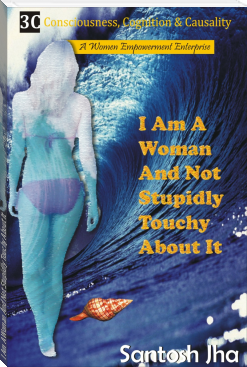
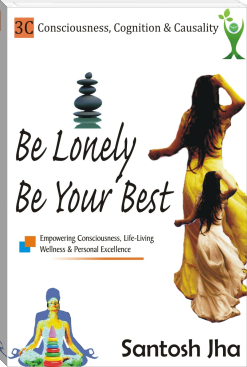
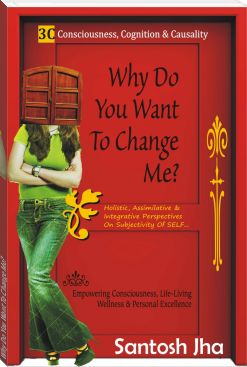
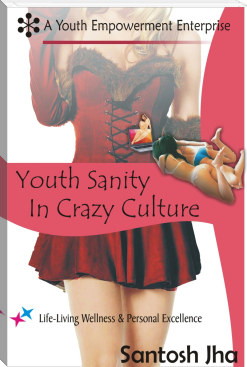
Comments (0)